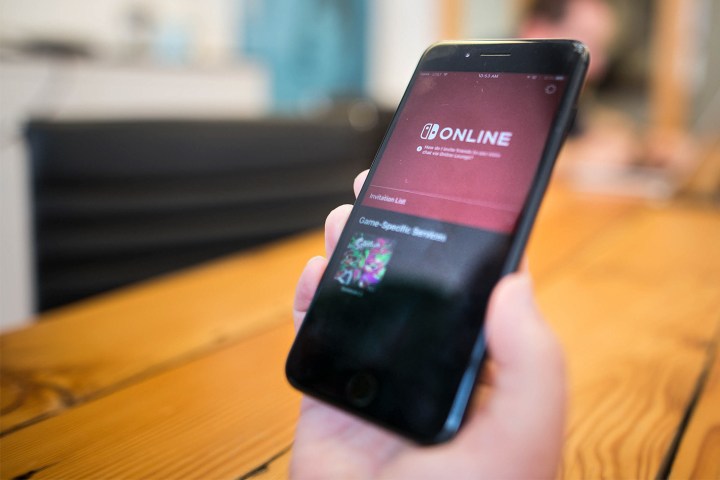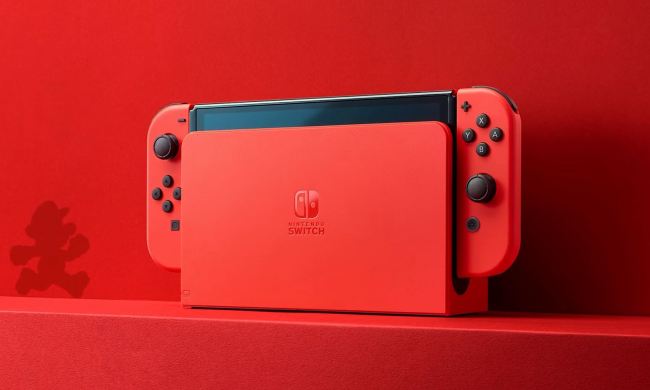
Limiting Splatoon 2’s online functionality is quintessential Nintendo.
As of right now, Splatoon 2 is the only game supported on the Nintendo Switch Online app. Load the app up on your mobile device, and you’ll see a tile that will take you to the game’s “SplatNet” portal. From here, you can check out the schedule for multiplayer matches – helpful if you want to play a particular map – as well as game statistics and your progress toward specific rewards. You can even purchase a selection of new gear for use when you make it back to your Switch.
That all sounds lovely, right? Being able to interact with your game when you can’t actually play is a large reason for companion apps existing in the first place.
The problem is that many features, including player statistics, the map schedule, and even some pieces of gear, are only available through SplatNet. If you don’t have a mobile device, it doesn’t matter that you already dropped hundreds of dollars on the system and Splatoon 2. There will be no way for you to view this information. Unlike the original game, SplatNet for Splatoon 2 isn’t even viewable on a web browser.
Limiting Splatoon 2’s online functionality is quintessential Nintendo. The company has taken a paternal approach to design for years, always insisting it knows what is best for players with its reliance on friend codes, proprietary discs, and unconventional control schemes.
With the Switch, Nintendo appeared to be, at the very least, moving toward a more open, modern sensibility. It’s a wonderful platform for independent developers, and its early library of exclusive games make great use of traditional control schemes. For the most part, online play has also been a joy on the Switch, with games like Mario Kart 8 Deluxe and Arms suffering very few issues with lag.
Nintendo should do the thing it seems to hate doing most — look to outside developers for inspiration.
It’s unclear what benefit there is in forcing players to use the app. There is no obvious reason why players shouldn’t be allowed to view detailed statistics from within the game, or purchase the highest quality gear. There’s no reason why they shouldn’t be allowed to view a 24-hour schedule for matches, and there’s certainly no reason why opening another app on your phone while using the system’s dedicated chat service should automatically end your call, which makes it more difficult to use than third-party options like Discord, Facebook Messenger, or Skype.
In this case, Nintendo should do the thing it seems to hate doing most — look to outside developers for inspiration. Other developers have managed to find a balance, making a useful app that doesn’t intrude upon players’ ability to have fun. “Battlelog,” the companion app for Battlefield 4, allowed players to check detailed game statistics, customize their loadouts, view real-time maps, and on tablets, without having to start up the game. Unlike Nintendo Switch Online, however, all of its content was also available in the game itself. The app simply acted as an extension of the game.
On the flip side of the same coin, Players have rarely accepted content that was removed from the game and relegated to an app. Many Destiny players loved the game’s story, but hated that the game’s lore database, the Grimoire, was only available online. Xbox SmartGlass, Microsoft’s attempt to graft a “second screen experience” onto the Xbox 360 never took off. Players appreciate having more options, spreading gameplay out over many devices has never been an especially appealing proposition.

And Splatoon 2 could benefit from many of these features. Once you’re in an online multiplayer lobby, there isn’t a way to switch out your weapons and gear. As the Nintendo Switch doesn’t offer a second screen like the Wii U, you’re forced to bring up a map on the main screen, blocking your view of the action. Offering this content to an app could not only speed up the game, but provide players with a more intuitive interface.
Nintendo likes to be the leader, not the follower. That’s understandable. The company has built its reputation on revolutionizing handheld and console gaming several times over, but there are times when the greater community of game designers have already wrestled with a problem and found a solution.
In the case of Nintendo Switch Online and the SplatNet app, the company’s desire to stand out from the pack comes at the expense of functionality, and that’s a real shame. We can only hope that Nintendo’s bullishness won’t limit the app’s (and the Switch’s) potential in the future.







